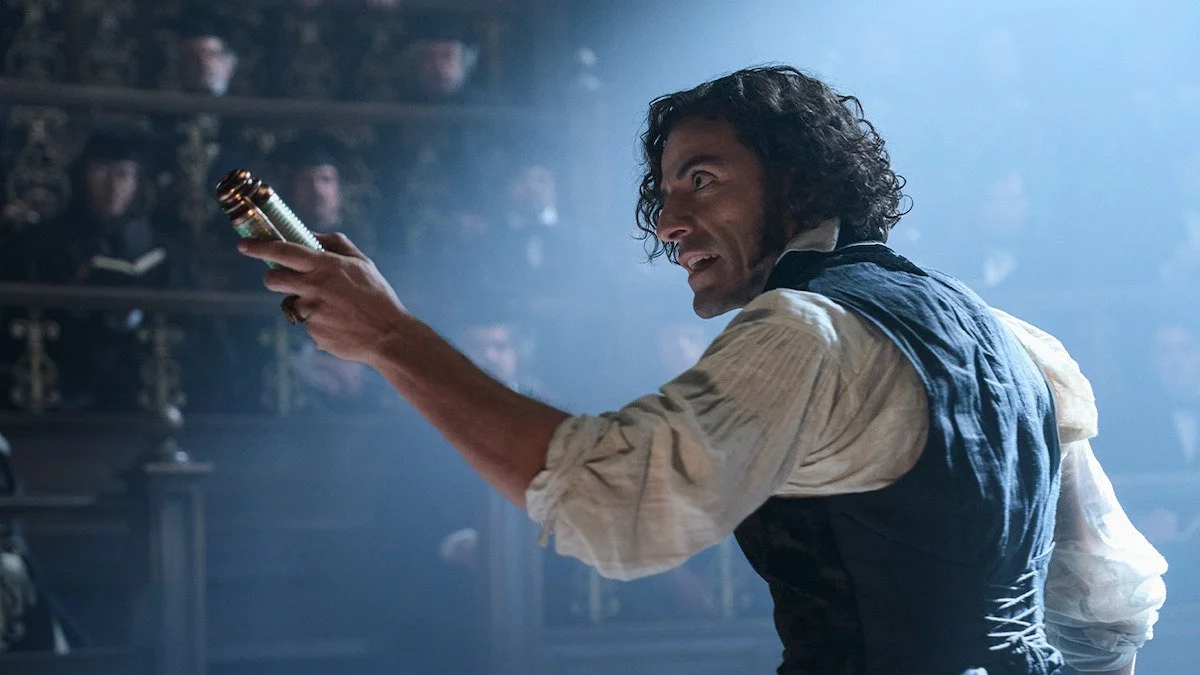The Venice Film Festival unveiled the official selection for its 82nd edition this morning, and Latin American cinema is set to enjoy a rare and meaningful level of visibility. While the region’s presence at Venice has historically been modest, this year’s lineup spans a wide range of films, highlighting diverse voices and styles.
In the festival’s official competition, Mexican director Guillermo del Toro returns with Frankenstein, his highly anticipated reimagining of the classic tale for Netflix. As the only Latin American filmmaker vying for the Golden Lion, del Toro’s inclusion underscores both his global stature and the ongoing challenge for Latin American directors to secure space in Venice’s most prestigious section. His ties to the festival run deep: Mimic screened in 1997, he served as a juror for the Luigi De Laurentiis Award in 2006, premiered and won the Golden Lion with The Shape of Water in 2017, and presided over the jury in 2018.
Acclaimed Argentine filmmaker Lucrecia Martel (La ciénaga, Zama) will present her long-gestating documentary Landmarks / Nuestra Tierra (formerly Chocobar) as a world premiere in the Out of Competition (Non-Fiction) section. The film recounts the story of Javier Chocobar, killed while resisting the eviction of his Indigenous community, and situates his death within the broader land tenure systems that have shaped Latin America. Martel’s return with a nonfiction work marks a landmark in Venice’s documentary slate.
The Orizzonti competition, which showcases new trends in world cinema, includes five Latin American films. Ecuador’s Ana Cristina Barragán presents Hiedra, following a 30-year-old woman who spies on teenagers in a group home, probing trauma and human connection. Argentina’s Alejo Moguillansky unveils Pin de Fartie, a poetic mosaic of intertwined lives blending reality and imagination.
Mexican filmmaker David Pablos’s En el camino follows Veneno, a rebellious drifter who travels across northern Mexico with a truck driver, confronting intimacy and danger along the way. Argentine director Gastón Solnicki’s The Souffleur, shot in Austria and starring Willem Dafoe, centers on a man fighting to preserve a historic Viennese hotel under threat of demolition. Colombian-American visual artist Stillz makes his feature debut with Barrio Triste, a coming-of-age story of teens on the margins of 1980s Medellín, told through the lens of a stolen camera.
Three Latin American shorts will also premiere in Orizzonti: Norheimsund by Cuban director Ana A. Alpizar, the Chilean animated short Merrimundi by Niles Atallah, and El origen del mundo (The Origin of the World) by Argentina’s Jazmín López.
Venice Classics will feature a new restoration of Mark of the Renegade, starring Mexican-born actor Ricardo Montalbán and directed by Argentine filmmaker Hugo Fregonese, alongside Javier Espada’s Spanish-Mexican documentary Memoria de los olvidados (Memory of the Forgotten).
The Venice Spotlight section includes Un cabo suelto (A Loose End) by Uruguayan director Daniel Hendler and Aún es de noche en Caracas (It Would Be Night in Caracas) by Venezuelan-Peruvian duo Mariana Rondón and Marité Ugás (Bad Hair). Hendler’s film follows Santiago, a man fleeing across the Uruguayan-Argentine border to escape his past, a frontier story that blends romantic comedy, western, road movie, and police thriller. Rondón and Ugás’s adaptation of Karina Sainz Borgo’s novel La hija de la española tells the story of Adelaida, trapped in a collapsing Caracas and forced to assume a new identity to survive in a climate of paranoia, fear, and violence.
At the 22nd edition of Giornate degli Autori, Venice’s independent sidebar, the Mexican coming-of-age drama Vainilla will have its world premiere. Marking the directorial debut of actress Mayra Hermosillo, the film is set in northern Mexico in the late 1980s, where seven women—grandmothers, mothers, aunts, daughters, and a domestic—share the precariousness and messy beauty of life under one roof. At the center, a young girl, Hermosillo’s alter ego, observes it all with the clear, unflinching gaze of a child.
This year’s slate brings together both established and emerging filmmakers, offering a richer, more cohesive view of Latin America’s evolving cinematic landscape. The 2025 edition marks a noticeable shift, reflecting the diversity of voices and the region’s growing recognition at one of the world’s most prestigious film festivals.
The 82nd edition of the Venice Film Festival will take place August 27 - September 6, 2025.





